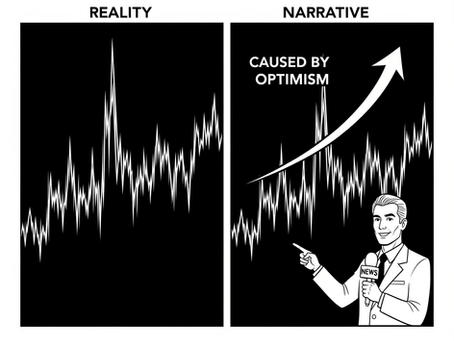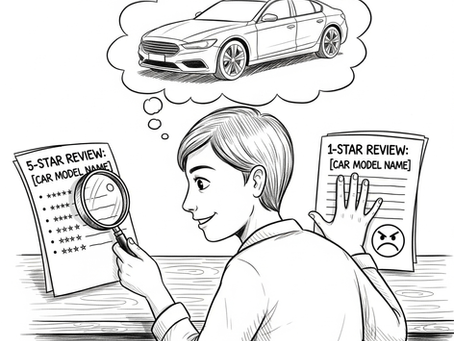top of page


Solving Unsolvable Problems.
The key to resolving conflict is not finding common ground but acknowledging that it may not exist. We argue, we debate, and we attempt...
Sep 46 min read


The Framing Effect. How a Single Word Changes Your Mind
A cognitive bias where people decide on options based on whether the options are presented with positive or negative connotations: the...
Aug 162 min read


Overcoming Loss Aversion for Smarter Investing
At its core, Loss Aversion is the observation that for human beings, the emotional impact of a loss is significantly more intense than...
Aug 166 min read


The Narrative Fallacy. Why we Simplify a Complicated World
The human tendency to create stories to explain past events, oversimplifying causality and making them seem more predictable than they...
Aug 162 min read


Confirmation Bias. Why are we so stubborn?
The universal human tendency to search for, interpret, favor, and recall information in a way that confirms or supports one's...
Aug 162 min read


The Dunning-Kruger Effect. Confidence vs. Competence
A cognitive bias where people with low ability at a task tend to overestimate their ability. A teenager earns their driver's license....
Aug 162 min read


Thinking, Fast and Slow. How to Master the Two Minds Within You
You begin the day with the clearest of intentions. A healthy salad for lunch, a brisk run after work, an evening spent with a good book. Yet, as the day unfolds, the salad is replaced by an impulsive slice of pizza, the run is replaced by the couch, and the book remains unopened. In the quiet of the evening, a familiar question arises: Why does this keep happening? This gap between intention and action is not a failure of willpower. It is a predictable outcome of a fundamenta
Aug 135 min read
bottom of page